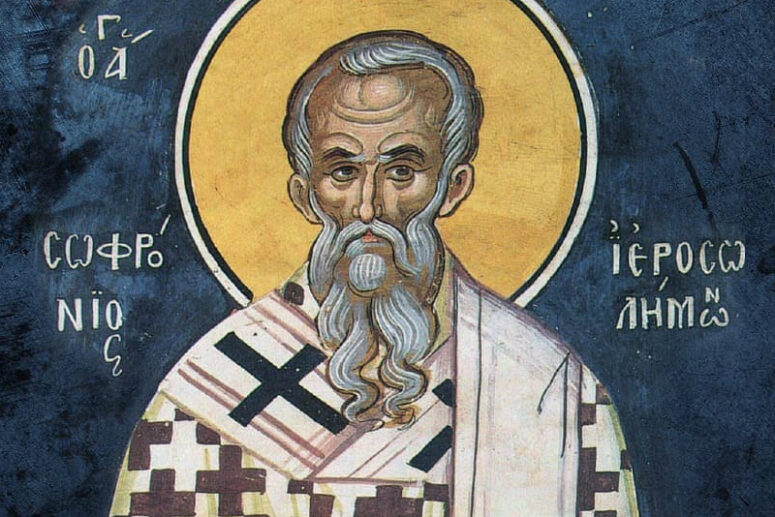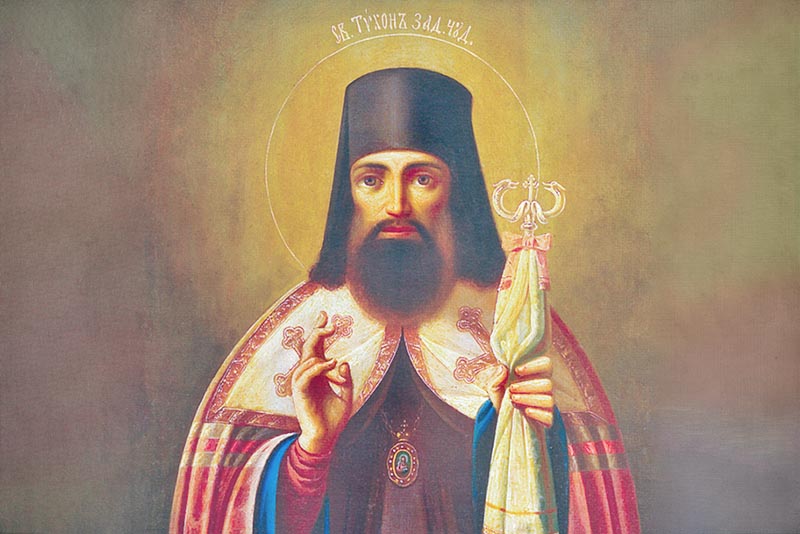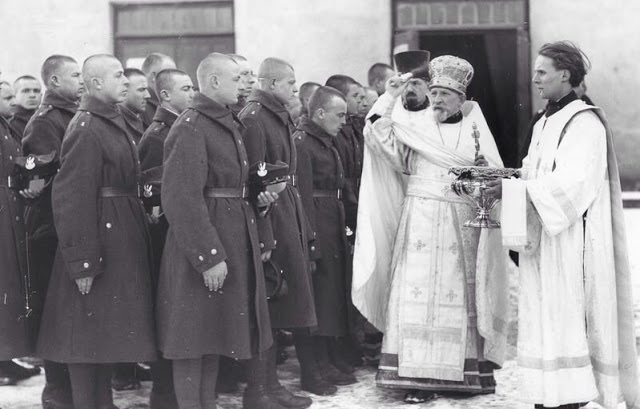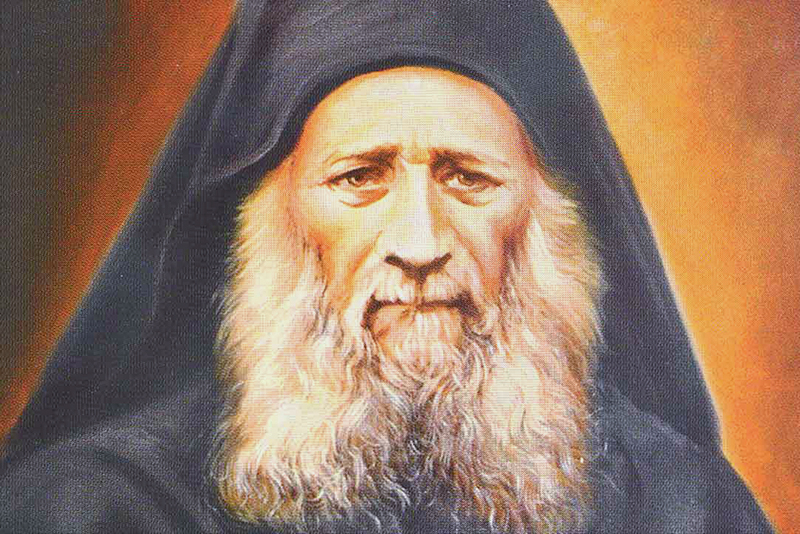
Most Orthodox faithful will have heard about the Monophysite heresy, simply because of the significant number of pre-Chalcedon churches that still adhere to it. Yet only a minority will have heard much about the false doctrine of Monothelitism.
But do not hurry to leave this page – I am not going to bore you with the details of the theological debates from the seventh century or baffle you with the fine differences in the doctrine that most will have difficulty understanding. Instead, I will talk about a saint who is not often noticed and given his due among a host of other saints glorified by the church, although his works have remained relevant and influential for our religious life to this day. The saint is Sophronius of Jerusalem. The Orthodox Church celebrates his feast day on 24 March.
Before we proceed to the details of his life and works, let me start with some background to make you interested. The Great Lent is still underway. As we all know, the repentant canon of Saint Andrew of Crete and the life of Saint Mary of Egypt are read at Church during the fifth week of the lent. What you might not know is that the author of the latter text is Saint Sophronius. He also contributed to and copied the book “Spiritual Meadow” by his friend Johann Moschus, which won high acclaim from the church fathers of the Seventh Ecumenical Council. Saint Sophronius was the spiritual teacher of the venerable Maximus the Confessor, helping him renounce the heresies of monergism and Monothelitism – and we remember Saint Maximus as a seventh-century defender of the purity of the faith. Saint Sophronius composed around 950 troparia, Pascha to Pentecost Stichera, and the three ode canons that form a part of the Lenten Triodion. He also wrote the Excursus on the Liturgy. Some scholars have ascribed to him the authorship of the hymn “O Gladsome Light”. If he had received a medal for his every achievement and wore all of his decorations on his garments, they would probably have weighed several kilograms. But, as a true servant of God, he reaps his genuine rewards in the Kingdom of Heaven.
Saint Sophronius was of Syrian descent, born in Damascus. He excelled in the study of philosophy, but was always drawn to the eternal wisdom of numerous hermits and other ascetics. As a young adult, he set off to the Monastery of Saint Theodosius in Jerusalem, where he met Hieromonk Johann Moschus and became his pupil and companion. Together, they travelled to different monasteries and recorded the lives of the monks who ascetised there.
At that time, Byzantine was in a lasting state of war with the Sasanian Empire of Iran. Progressively, the Sasanites captured Syria, Palestine, parts of Egypt and eventually reached the outskirts of Constantinople. Sophronius and John retreated to Antioch and then to Egypt. In Alexandria, Sophronius accepted monastic tonsure and together with his spiritual teacher aided Patriarch John the Merciful in opposing the heresy of Monothelitism. Its adherents claimed that Jesus had only a Divine will, not a human one. Saint Maximus the Confessor wrote a refutation of this teaching. This is not the place to present it in detail. Let me just note that in his critique, Maximus argued that the Monothelite position contradicted the principle of the Church Fathers “what was not seen, was not saved”. To claim that Christ had no human will would lead us to exclude it from His redemptive sacrifice.
When the Sasanites approached Alexandria, John and Sophronius departed to Constantinople, but eventually directed themselves to Rome. There, Johann Moschus died in 622, and Sophronius transported his body back to Jerusalem and had him buried in St. Theodosius Monastery. He stayed at the monastery up until 634, when he was elected Bishop of Jerusalem, succeeding Patriarch Zechariah and Modestus. Almost immediately after his election, Sophronius called a council to condemn the heresy of Monothelitism, actively favoured by the government of Byzantine. To communicate and explain the Council’s decisions to the Patriarchs, Saint Sophronius wrote his Synodical Letter, which later became his most prominent work in Christian dogmatics. Incidentally, the episcopates of Constantinople, Alexandria and Antioch were all controlled by the heretics.
Apart from his role as a bishop, Sophronius was also called to serve as a military commander. After the death of Caliph Muhammad in 632, his successor Abu Bakr established a Muslim state – named the Righteous Caliphate – and started a series of predatory wars. He captured Syria and Iraq, and his successor Umar Ibn al-Khattab defeated the army of Emperor Iraclios in the battle of Yarmuk. Umar then directed his armies towards Jerusalem and besieged the city in 637. Sophronius took command of the defence of the city, but the Christians had few resources to resist, especially with no hope of any reinforcements from Constantinople. Bishop Sophronius had to make the difficult decision to surrender the city on the condition that the sacred relics would be spared. Umar kept his promise not to destroy the city but broke his word to spare the relics, by desecrating some of the temples. On Temple Mount, the Caliph participated in person in clearing the territory for a mosque. For more than four centuries onwards, Jerusalem remained under the power of the Muslims, until the Crusaders recaptured it in 1099.
According to legend, the fearsome Caliph Umar impressed the residents of Jerusalem – accustomed to voluptuous imperial processions – by his simplicity and modesty.
Saint Sophronius died in 638, soon after the capture of Jerusalem.
Saint Sophronius left several homilies for various feasts. They are quite short but make useful and interesting reading. Although Saint Sophronius gained prominence in Church dogmatic, he was not a dogmatist in the full sense of the word. Even his synodical letter is more pastoral than philosophical. It was written with great warmth, like his many other works. As we continue fasting, let us gain reassurance and strength from the words of Saint Sophronius, who calls on us not to weaken the effort and commitment that we took upon ourselves at the beginning of the lent. “O lent, a God-given weapon that cuts off our passionate desires as if with an axe; which Adam lost and was expelled from Eden, and which Moses preserved and saw God! O lent, more powerful than a fire, quelling the Chaldean fire and keeping the three youths unharmed! O lent, saddening the Prophet Jonah, but sparing the city of the Ninevites. Even if anyone desired to know the ways of the lent, they would hardly find it possible to know the yet untrodden ways of God.”
Translated by The Catalogue of Good Deeds
Source: https://pravlife.org/ru/content/sofroniy-ierusalimskiy-svyatoy-ukrasivshiy-liturgicheskuyu-zhizn-velikogo-posta




